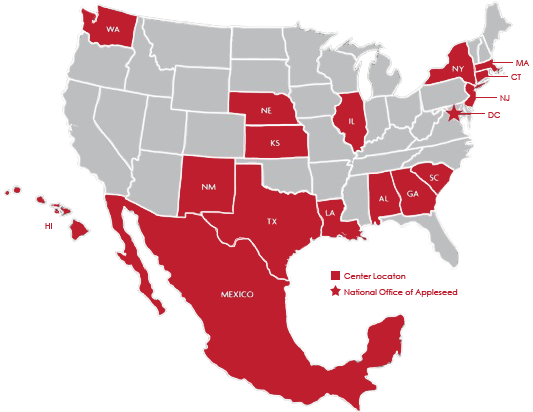Our friends at the Greater Boston Legal Services School to Prison Pipeline Intervention Project have created these helpful fact sheets to guide students and parents of students who have been subjected to school discipline. Please note that these are for information purposes only and do not constitute legal advice or establish an attorney client relationship between Massachusetts Appleseed and any visitor to our website. Note also that there are two “know your rights” fact sheets below – one that applies only to Boston Public Schools students and the other that applies to students at all other public school districts. Additionally, the statewide know your rights fact sheets apply to district schools and charter schools, but they do NOT apply to parochial or other private schools. Finally, a student who is accused of possessing drugs, possessing weapons, or assaulting educational staff, will be subject to rules that are slightly different than presented on these sheets. If a student is accused of any of those offenses or charged with a felony, they should seek legal help.
For Immediate Release
Guide Comes as Record-Setting Backlog of Immigrant Cases Face Uncertain Future
Washington, DC and Chicago, IL, February 14, 2017 – With refugees and other immigrants facing rapidly escalating challenges, the Appleseed Network today released a major new resource to help new and experienced attorneys navigate the complicated U.S. immigration court system and save immigrants from deportation, exile and persecution.
The new Practice Guide, titled “Getting Off the Assembly Line: Overcoming Immigration Court Obstacles in Individual Cases,” is a product of the Immigration Justice Collaboration of Appleseed, a non-profit network of 17 Centers across the U.S. and Mexico, dedicated to advancing justice and opportunities that help low-income people and working families build better lives.
A record half-million cases are waiting to be heard by U.S. immigration courts, which pose daunting obstacles: the near-absence of formal discovery, the challenges interpreting to and from foreign languages, and minimal out-of-court contact between attorneys, their clients and opposing counsel.
The Guide provides an overview of immigration court proceedings, as well as specific sections on working with clients in detention, obtaining client documents from the government, pre-hearing communications with the Department of Homeland Security (DHS), dealing with interpretation and videoconferencing challenges and reporting immigration judge and DHS attorney misconduct. The Guide also provides several template and sample documents to assist attorneys in these cases.
“This Guide should help every attorney do a better job in immigration court — and encourage more attorneys to do pro bono representation in these courts,” said Steve Schulman, co-chair of Appleseed’s national board.
“Better trained immigration attorneys will help insure that immigration courts are guided by due process and that they always follow the rule of law,” said Malcolm Rich, Executive Director of Chicago Appleseed.
“For more than two decades, the Appleseed Network has helped refugees and other immigrants seek justice and opportunity in the United States and Mexico. In this critical moment of moral and legal challenge, Appleseed and many of its Centers around the country are redoubling our efforts to help vulnerable immigrants and refugees: through systemic reforms, pro bono representation, and efforts to help immigrants build better lives and make our nation stronger. The Guide is the next crucial step in that work,” added Bert Brandenburg, President of Appleseed.
The law firm Akin Gump Strauss Hauer & Feld LLP provided pro bono assistance and counsel in the development of the new Practice Guide. This is the latest in a series of immigration-related research and publishing projects on which Akin Gump and Appleseed have collaborated. Previous reports have included A DREAM Deferred: From DACA to Citizenship (PDF) and Reimagining the Immigration Court Assembly Line.
For more information and to download the report, please visit Appleseed’s website.
About Appleseed
A nonprofit network of 17 public interest justice centers in the U.S. and Mexico, Appleseed is dedicated to building a society in which opportunities are genuine, access to justice is universal and equal, and government advances the public interest.

Jonathan Chiel
Good Apple Award Recipient
Save the Date!
March 23, 2017
6:00 pm Reception
7:00 pm Award Ceremony
Boston Harbor Hotel, The Atlantic Room
10th Anniversary Good Apple Award
On Thursday, March 23rd 2017 Massachusetts Appleseed will host its 10th annual Good Apple reception at the Boston Harbor Hotel. We are pleased to announce that this year’s recipient of the Good Apple Award will be Jonathan Chiel, Executive Vice President and General Counsel of Fidelity Investments.
The Good Apple Award is presented annually to a person in the legal community who exemplifies the true spirit of Massachusetts Appleseed’s mission; promoting equal rights and opportunities for Massachusetts residents by developing and advocating for systemic solutions to social justice issues. Throughout his career, Mr. Chiel has demonstrated his dedication to excellence in the law, public service and social justice and the reception will highlight his many accomplishments and commitment to caring for others.
As Executive Vice President and General Counsel for Fidelity Investments, Mr. Chiel also has responsibility for Fidelity’s Public Affairs and Policy Group. Prior to joining Fidelity he was General Counsel at John Hancock Financial Services, the US division of Manulife Financial and was a member of the Manulife Management Committee. Before joining Hancock, Mr. Chiel was a partner with Choate, Hall and Stewart in Boston, serving as chair of the firm’s Government Enforcement Practice Group. Earlier in his career, he was an assistant U.S. Attorney in the Boston office for 10 years, serving as Chief of the Criminal Division from 1993 to 1995. Mr. Chiel received a Bachelor of Arts degree from Brown University and a Juris Doctorate Degree from Harvard Law School.
Active in numerous civic, educational and charitable pursuits, Mr. Chiel currently serves as a director on the boards of the Boston Bar Foundation and the Maimonides School. Unwavering in his commitment to fairness and social justice, Mr. Chiel represents the very best in our legal community and is a “Good Apple” in the truest sense.
For sponsorship opportunities or tickets, please contact Stephanie Adler at stephanie@massappleseed.org.
Invitation (PDF)
Sponsor Pledge Form (PDF)
2017 Good Apple Award Recipient (PDF)
Massachusetts Appleseed Center for Law and Justice
101 Federal Street, Suite 1900
Boston, MA 02110
(617) 482-8686
inquiry@massappleseed.org
Recent News
- Celebrating Women’s History Month: Spotlight on Carolin Hetzner March 28, 2024
- Joint Rule 10 Day Progress Report: Where Did Our Legislative Priorities Land? February 29, 2024
- Urge Your Legislators to Break Down a Major Barrier for Youth Experiencing Homelessness! October 18, 2023
- MA Appleseed Issues Statement on Language Access Executive Order September 13, 2023

